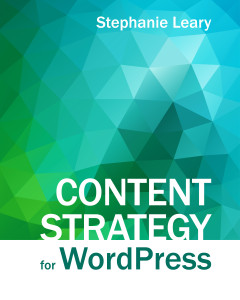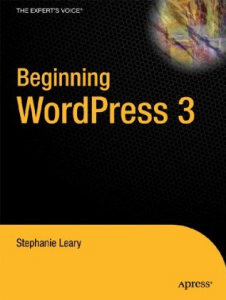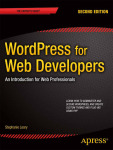After eleven years of SF conventions, RWA National was … different. Convention neepery follows; run away now if you don’t care about this sort of thing.
For starters, I’m more or less used to being in the minority at SF cons. (I haven’t been to WisCon. I will.) RWA National consists of two thousand women, give or take a hundred, and about half a dozen men. The beleaguered hotel staff had to convert some men’s rooms for women’s use. The men put up with a fair amount of the kind of ribbing women at SF cons find offensive. It was very weird, being on the other side of the equation.
The website
Naturally, my conference experience started out with the RWA website. The sum total of information I found on the conference, the weekend before it began, was a listing of the main speakers, and this sentence: “RWA is proud to host its 27th Annual National Conference at the Hyatt Regency in Dallas, Texas, July 11-14, 2007.” There was more verbiage, but it was all happy text (tm Steve Krug). For more information, the site referred me to the February issue of the RWR — which I didn’t have, since I’d joined in May.
Where is the Hyatt Regency? How do I get there? If I’m flying, which of Dallas’s two airports should I use? Is there anywhere to eat, other than the hotel facilities? And if this information is all in a magazine that was published several months ago, why couldn’t it be duplicated online?
Compare the information available on National to the website of any halfway decent regional SF con, which routinely includes exhaustive travel information, bios of the guest speakers, a general idea of programming content and schedules, and often a list of attendees. Some cons even provide a local restaurant guide, either online or in the registration packet. Granted, your average regional SF con’s website looks like it was designed by a twelve-year-old with a newfound love of WordArt. It still has the goods.
A redesigned version of the RWA site debuted about two days before the conference began, so it’s entirely possible that my problems had to do with content that was removed during the redesign and not yet replaced. If that was the case, I’d suggest to the organizers that the weekend before the conference is not the ideal time to roll out your redesign, even if the old site is a visual embarrassment — and if you must, there are some pieces of the site you need to fight to preserve. Like the conference logistics.
Registration
Smooth as glass. Big SF cons, and SxSW, should pick up pointers.
Programming
RWA blows away every SF con I’ve ever been to in this department.
Granted, the focus is different. Most cons have to, or try to, accommodate both fans and professionals, whereas RWA is all about writing. But even if I leave out the fan-dominated cons and just consider World Fantasy, which is almost exclusively for pros… there was just no comparison. The smallest and least attended talk I heard at National had more useful data and advice about writing and publishing than either of the World Fantasy cons I’ve been to, and way more than many SF cons manage to convey in an entire weekend’s worth of writing tracks. The level of discussion was closer to the Viable Paradise writing workshop than a con, in fact.
At first I was skeptical about talks given by a single author. I’m used to SF-style panel discussions, where (in theory) I’d get a variety of points of view on a given topic. Of course, if you’ve ever been to a con, you know that many panels wander from their original topics — and who’s to say it was a good topic in the first place? Still, I thought, more is better, and you often need four people on a panel to rein in the resident blowhard. Listening to one person talk for an hour would be boring, and we’d hear only one point of view. Right?
Not so much. The difference is that each speaker had a topic s/he could talk about in depth for an hour without scratching the surface of what s/he knew on the subject. These were not discussions thrown together at the last minute. For the most part, they were repeats of talks that had been popular in the past, or they were distillations of subjects on which the speaker had written a book.
Not all the talks were single speakers. I went to one panel with four editors that was quite entertaining, and one with two authors and their agents talking about finding the perfect agent. These were great. I was really impressed, though, with the single-speaker talks, and I think SF cons should consider doing more of them.
Highlights:
- Michael Hague on the character’s journey. This was a two-hour talk based on his books. For the first hour-and-a-bit, he discussed things that applied to any character in any story. Then he talked specifically about how those things work in a love story. It was nothing short of brilliant, and he’s worth every penny of what I’m sure was an extortionate speaker’s fee.
- Todd Stone’s Novelist’s Boot Camp. Another two-hour talk based on a book, this was all about ways to get un-stuck. Ways to fix pacing or show-vs.-tell problems, ways to trick yourself into overcoming writer’s block… all great stuff. I probably would have picked up even more if this hadn’t been scheduled at 6, after a full day of programming.
- “Secrets of the Bestselling Sisterhood” by Susan Elizabeth Phillips and Jayne Ann Krentz. These ladies were absolutely hilarious, constantly riffing off each other, and they really did have a lot of good advice to share. I’d like to clone the two of them and send them to every SF con in the country to knock some sense into newbie writers.
- Susan Elizabeth Phillips (again) on her six magic words: “Keep the reader in the story.” The magic words themselves are straightforward, of course, but she went on for an hour about ways to do that. Great talk; I should dig out my notes and do another post entirely.
Added bonus: RWA records most of its sessions (and marks in the schedule the ones not being recorded). You can order individual sessions that you missed or get a conference set of MP3s on CD for $100. I missed enough of them — not by slacking, but by attending unrecorded things — that splitting a set with Sarah was very much worth the cost.
I haven’t been to WisCon or ReaderCon, which are noted for their excellent programming. I’d love to find out how those two compare to National.
One thing I hear from attendees is that they panic and sweat over their agent/editor appointments — while the agents and editors rarely find them useful; at best they’ll just say “send it in.” I know this is sort of a traditional feature of the conference, but… come on. For the writers, it’s just another opportunity for rejection, and surely there are better uses for the agents’ and editors’ time.
Community
Michael Hague mentioned that RWA is the most supportive organization he’s ever seen in terms of educating and guiding new writers. He’s not wrong. I know the question of whether unpublished writers should be able to join SFWA is a perennial source of slapfights, and I know RWA’s model is not perfect. I still favor it, and attending National only reinforced my view.
Whereas SF cons encourage fans to mingle with pros at practically every opportunity, National’s only fan-oriented event is the literacy signing Wednesday night — and that’s open to the public. However, non-members can attend the conference, for a somewhat higher price. I’d be curious to see how many people took advantage of that. The difference in price was equivalent to a year’s membership dues, so I just joined.
What (not) to wear
First writing conference I’ve been to where business casual was the more casual end of the clothing spectrum, let me tell you. Never seen so many people willingly wearing heels to an event where they know they’re going to be standing in line for two hours or more.
There has been much discussion, after the fact, over the cosplay. I gather such a sight is new and terrifying to RWA attendees. I don’t get the fuss. Certainly a woman wearing a two-foot black swan on her head is going to raise some eyebrows, but this kind of thing seemed to me both innocuous and normal. Have I spent too much time at SF cons, or are RWA members, on the whole, a little too concerned with dressing for the conference as if they were appearing in court? At least one other person at the Smart Bitches bar gathering shared my view, which was that until you’ve been to A-kon, you ain’t seen nothing.
I suspect a fair amount of the sniping has to do with the fact that the authors in the short skirts have better thighs than most people who sit around typing on a computer all day.
The swan, though… well. Memo to the world: Avian headwear? Never the smart fashion choice.
Locations
RWA has a division for its published authors called PAN (Published Author Network, I think). It had its own lounge and events, but they were held waaaaay over in Union Station. It’s connected to the Hyatt by a tunnel, but it’s not in the same building. I don’t know what they could have done about this, though, because it appeared that the rest of the conference was taking up all the available space in the hotel proper.
Eh. All conventions have problems with hotel layouts. You switch hotels to get a better layout, and you trade things like parking and access to restaurants.
Food
I didn’t see a restaurant guide anywhere. I attempted to map some things beforehand, but I couldn’t find much on Google Maps. We ate one meal in the hotel restaurant and regretted it; the service was slow, the food awful and overpriced. (Typical, in other words.) The second hotel restaurant remained closed that night, despite posted hours indicating it should have been open.
On the second day, we skipped out on the general meeting and went to see Harry Potter and have dinner at the Cheesecake Factory, so that was all right.
Then we discovered the Landmark Grill, which was just on the other side of Union Station. OMG, that place was good. Service was slow as hell, but they seemed to be short-staffed. The food was amazing, and quite reasonably priced. We had three meals there in two days — Sarah even managed to get a bland soup when she wasn’t feeling well — and when we went back on Sunday to find it closed, I almost cried.
The place was full of RWA badges every time we went, but that was still a tiny percentage of the attendees. I wonder how many of them found decent food, and how many were stuck with the hotel swill the entire time.
The giveaways
Everywhere I turned, there were free books. I sort of knew about this in advance, since Sarah comes home with bags and bags of books every year, but… I dunno, I guess I thought she bought more of them. The profusion of books was simply amazing. I’m used to getting a bag of free books along with my registration materials at larger cons like World Fantasy and WorldCon, so I wasn’t surprised to see the same thing here. However, RWA was not done. There were ARCs on the freebie tables. There were piles of books on our chairs at both days’ lunches and one (hardcover) on the chairs at the movie screening. Speakers gave away books. The publisher-sponsored signings held throughout the weekend (not the public literacy signing Wednesday night) were, as I should have guessed from the name, sponsored by the publishers — that is, you walked up and said, “I’d like you to sign a book for me, please,” and the author would hand you a book from the pile next to her, which you then carried off free and clear. I was actively avoiding free books, and I came away with about thirty. Sarah wasn’t, and ended up with four large, overflowing bags. (She got me two that I wanted, since I was an ignoramus and didn’t go to the publisher-sponsored signings. Silly me.)
SF cons: stingy with the ARCs. RWA: throwing them at us like we were on stage at Rocky Horror.
On the other hand, there’s no dealer’s room at RWA. They have one small room set up with tables of books stocked and sold by — was it Borders? One major chain bookstore, anyway. They carried the latest novels by most of the speakers, as well as the writing books used in the workshops and various other writing-related things. The selection was not as broad as a dealer’s room would have, but it was better stocked to handle the influx of people coming out of, for example, the Novelist’s Boot Camp workshop and looking for a copy to take home. I’d really like to see RWA merge its Midnight Madness bazaar, where various chapters get tables to peddle their flair promotional stuff and chapbooks and whatnot, with a true dealer’s room AND the Border’s mini-store.
Conclusions
My only conclusion, really, is that both RWA and SFWA/SF convention organizers could learn a lot from each other. Each of them ought to send a representative to the other’s con, so they can observe and come back with ideas.
SF cons: improve your programming.
RWA: learn the uses of a dealer’s room.
SFWA: observe that helping unpublished writers join your ranks does not signal the end of the universe.
RWA: acknowledge that mingling with fans will not infect you with cooties.
SF cons: learn how to register attendees without inciting riots and rage.
RWA: see how people are less confused when you post useful information (travel, restaurants) on your website.
One constant? All the fun stuff took place in the bar.




What a great, great breakdown of the RWA conference, especially compared to the SF cons. The dealer’s room in an interesting suggestion–I think such a room might exist at the Romantic Times conference, which is fan oriented. I’m not sure though, I haven’t been to that one.
On the cosplay, I think the complaint was not that fans were in costume–readers are most certainly allowed to do what they want. I think the complaint was more that authors should not be in costume (i.e. big life-size swan hat) at an event that also represents 450 other romance authors. And that swan hat was the only photo in the paper the next day. So, the hat would be fine at individual author signings but at a group event, it might seem prudent to realize your swan hat might represent them, too, and they might not really want to be represented that way. Do SF authors, by and large, dress in costume for events? I’m curious.
As a fan of both genres, I get far more of a knee jerk “omigod, you read those trashy books” when I tell people I read romance novels and a lot more respect when I tell them I read Heinlein or Bujold or David Brin. So romance authors are probably a little more sensitive on the matter, since ‘trashyromancebooks’ often seems to be a single word.
But, wow, lovely breakdown. Do you mind if I post a link to it?
Not at all! Link away.
I haven’t been to RT either. No doubt I could draw better comparisons if I went. It’s hard to draw a straight line from RWA’s stuff to the SF equivalents, because on the SF side things are divided between SFWA’s territory and the fan-run conventions.
I would say that on the whole, SF authors rarely dress in costume — and to be fair, they get criticized for appearing on panels in garb, especially at the larger cons that get media coverage. So yeah, if the swan hat made the paper (how hilarious!) then I can see the problem.